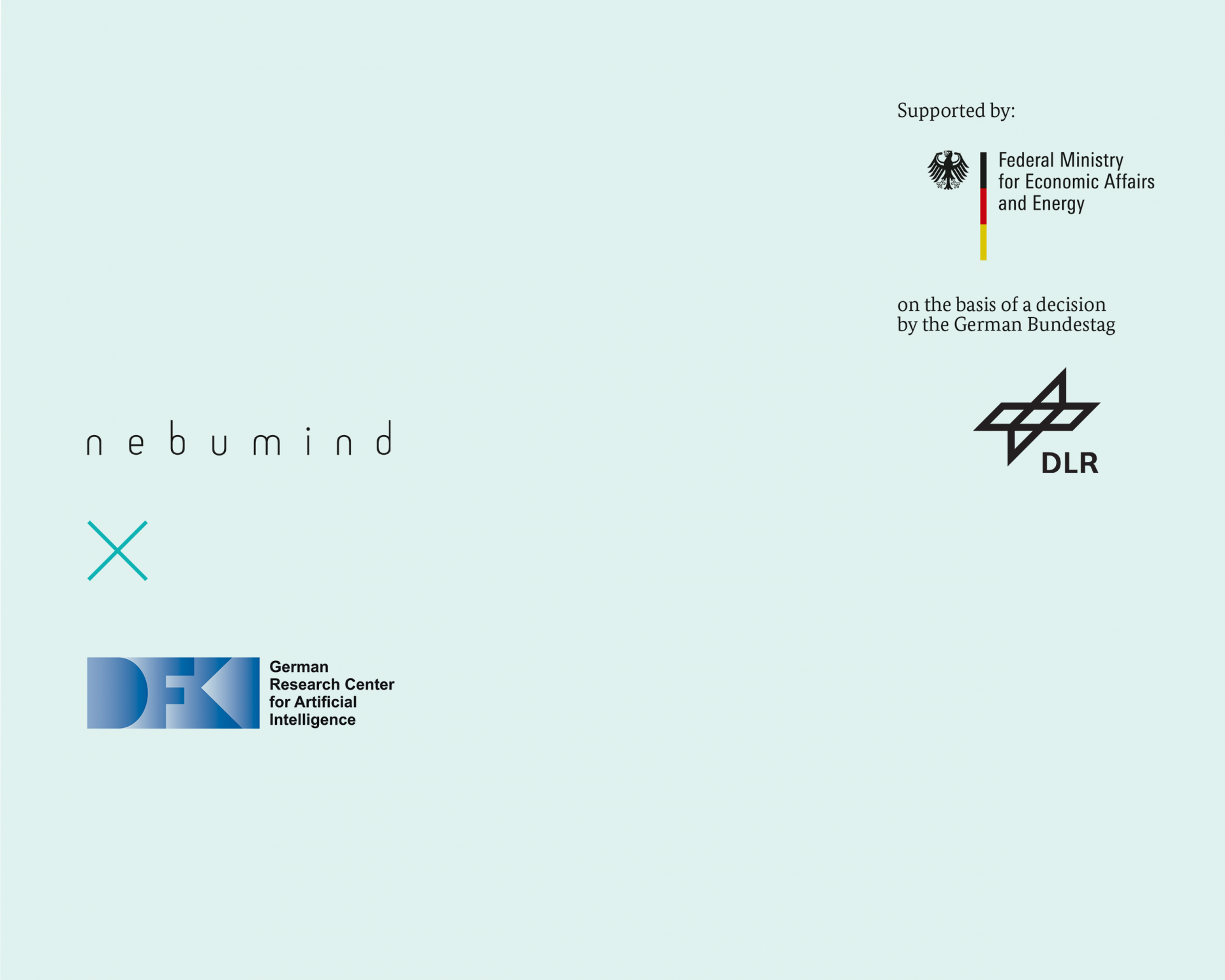


18/01/2023
nebumind teamed up with with the research area „Smart Data & Knowledge Services“ of Deutsches Forschungszentrum für Künstliche Intelligenz (DFKI) for a new R&D project, called ADaMus. The project will be funded by the Federal Ministry for Economic Affairs and Climate Action (BMWK) in collaboration with Deutsche Raumfahrtagentur (DRL) over the next 3 years. Within the project, the partners will develop AI-based tools to monitor and inspect path-related manufacturing processes, such as welding, bonding and fiber placement. The AI tools will help manufacturers in the future detect quality issues during manufacturing already and avoid scrap and cost-intensive repair.
Components manufactured for the space industry must meet highest quality and safety standards. Complex manufacturing processes are often used for this purpose, which are correspondingly defect-prone and therefore cost-intensive. nebumind and the DFKI have joined forces to develop data-based tools that enable productions to achieve higher process stability. AI-supported analyses should, on the one hand, monitor the production processes more effectively and, on the other hand, accelerate the downstream quality inspection.
The AI tools are being developed in the scope of the friction stir welding process as an example, but are transferable to other path-related manufacturing processes, such as welding, gluing or fibre deposition processes.
In the ADaMus project (Anomaly and Defect Detection for Pproduction Monitoring in Space Manufacturing through Automatic Pattern Recognition), nebumind is concentrating on AI-supported process monitoring. In the first step, nebumind will develop a spatial anomaly detection that shows machine operators differences of the just manufactured component compared to a reference component. Based on this, nebumind then develops a defect prediction system that reports potential defects before they occur, thereby reducing scrap and the need for repairs.
nebumind’s spatial data acquisition and analysis makes it possible to define high-resolution tolerance ranges that can vary locally, i.e. in different areas of the component. This makes quality monitoring much more sensitive and accurate compared to conventional time-based data analysis tools that have been used to date to monitor manufacturing processes.
Both the project partners and the funding authorities aim for the AI tools to monitor highly complex manufacturing processes more effectively and significantly reduce the potential for defects. In times of growing competition, the European space industry should remain competitive with lower production costs this way.
Caroline Albert